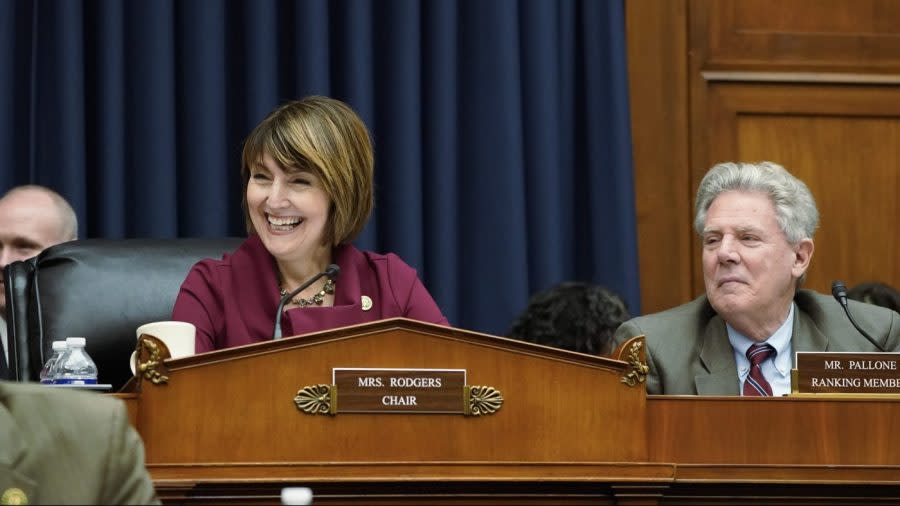Online liability protections have outlived usefulness, top lawmakers say

Two lawmakers are pushing back against online liability protections for Big Tech companies, saying the law has “outlived its usefulness.”
Reps. Cathy McMorris Rodgers (R-Wash.) and Frank Pallone Jr. (D-N.J.) co-authored an op-ed in The Wall Street Journal on Sunday to rail against Section 230 of the 1996 Communications Decency Act. The pair of lawmakers argued in favor of sunsetting Section 230, which largely protects social media companies from being sued over the content people post to their sites.
“Unfortunately, Section 230 is now poisoning the healthy online ecosystem it once fostered. Big Tech companies are exploiting the law to shield them from any responsibility or accountability as their platforms inflict immense harm on Americans, especially children. Congress’s failure to revisit this law is irresponsible and untenable,” the lawmakers wrote.
Section 230 has been under scrutiny from lawmakers on both sides of the aisle. Sens. Josh Hawley (R-Mo.) and Dick Durbin (D-Ill.) introduced legislation last year that would limit tech companies’ legal immunity under Section 230. However, that legislation has yet to advance after Sen. Ron Wyden (D-Ore.) blocked it earlier this year.
Rodgers and Pallone argued that rolling back the protections on Big Tech companies would hold them accountable for the material posted on their platforms.
“These blanket protections have resulted in tech firms operating without transparency or accountability for how they manage their platforms. This means that a social-media company, for example, can’t easily be held responsible if it promotes, amplifies or makes money from posts selling drugs, illegal weapons or other illicit content,” they wrote.
The lawmakers said they were unveiling legislation to sunset Section 230. It would require Big Tech companies to work with Congress for 18 months to “evaluate and enact a new legal framework that will allow for free speech and innovation while also encouraging these companies to be good stewards of their platforms.”
“Our bill gives Big Tech a choice: Work with Congress to ensure the internet is a safe, healthy place for good, or lose Section 230 protections entirely,” the lawmakers wrote.
For the latest news, weather, sports, and streaming video, head to The Hill.


